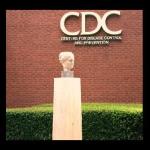Join Cameron English and Dr. Chuck Dinerstein as they examine a case of opioid research with "a side of corruption" on Episode 62 of the Science Dispatch podcast:
opioids
Join host Cameron English, Dr. Josh Bloom and Dr. Barbara Billauer as they break down these stories on Episode 56 of the Science Dispatch podcast:
Join host Cameron English, Dr. Chuck Dinerstein and Dr. Barbara Pfeffer Billauer as they break down these stories on Episode 51 of the Science Dispatch podcast:
As Stat reports, Senators Manchin and Markey have
This month Australian researchers published the results of a population cohort study that followed the 5‑year trajectory of 3.7 million adult patients in New South Wales who were prescribed opioids for pain in the
You cannot trust what Hollywood says about science.
A new study released earlier this year adds more evidence to the mountains of evidence that policymakers trying to solve the overdose crisis have been aiming at the wrong target.
A recent article by Elizabeth G Dost in Newsweek Magazine is highly in
Join host Cameron English as he sits down with Dr. Chuck Dinerstein to break down these stories on Episode 40 of the Science Dispatch podcast:
Join host Cameron English as he sits down Dr. Josh Bloom to break down these stories on Episode 36 of the Science Dispatch podcast:












